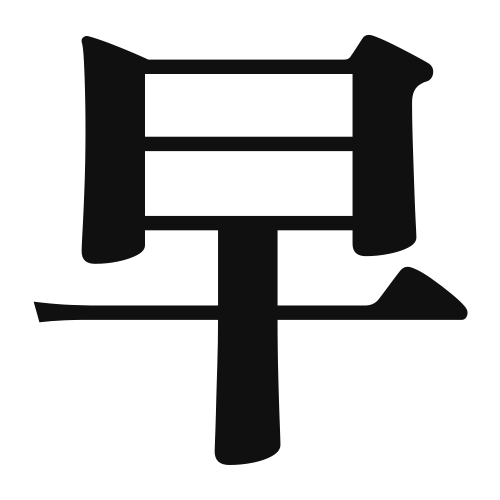1. Overview of Meaning
The kanji “早” (pronounced “sō” or “hayai”) means “early” or “fast.” It is used to describe something that occurs before the expected time or something that is quick in nature.
2. Formation and Radical
The kanji “早” is classified as a pictogram, originally depicting the concept of something being early or quick. The radical for this kanji is 夕 (evening), which is often associated with the idea of time.
3. Examples of Usage
Common words and phrases that include “早” are:
- 早起き (はやおき, hayaoki) – early rising
- 早い (はやい, hayai) – early or fast
- 早朝 (そうちょう, sōchō) – early morning
Example sentence in daily conversation:
「私は毎朝早く起きます。」(Watashi wa mai asa hayaku okimasu.) – “I wake up early every morning.”
4. Synonyms and Antonyms
Similar kanji with related meanings include:
- 速 (そく, soku) – meaning “fast” or “quick,” but often used in contexts related to speed rather than time.
Antonyms include:
- 遅 (おそ, oso) – meaning “late,” which indicates something that occurs after the expected time.
5. Cultural and Historical Background
The kanji “早” is deeply rooted in Japanese culture, often associated with the value placed on punctuality and efficiency. It appears in various proverbs and idiomatic expressions, such as:
- 早起きは三文の徳 (はやおきはさんもんのとく, hayaoki wa sanmon no toku) – “Early rising brings a profit of three mon,” which emphasizes the benefits of waking up early.
This reflects the cultural significance of being proactive and making the most of one’s time in Japanese society.
